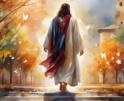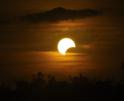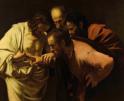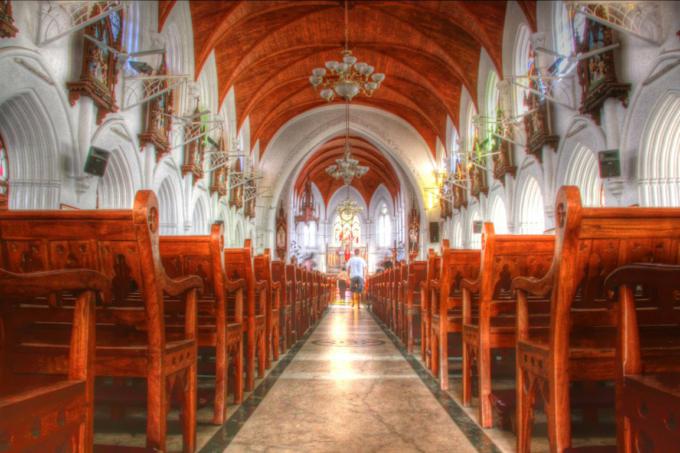
Faith
Now is the time for the Church in the United States to revisit the way we celebrate, and don't celebrate, holy days of obligation.
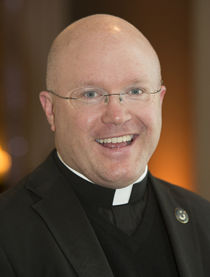
Landry
One of the most important things in life is to learn from and correct one's mistakes. Sometimes we make decisions that appeared wise at the time but prove to have unforeseen and unintended negative side effects. We need to be humble, prudent and responsible enough to evaluate the results of our decisions and, if they haven't produced what we hoped for, change course.
Now is the time for the Church in the United States to revisit the way we celebrate, and don't celebrate, holy days of obligation. It's been 21 years since the U.S. Bishops made certain holy days -- the Solemnity of Mary, Mother of God on January 1, the Assumption on August 15 and All Saints on November 1 -- non-obligatory if they fall on a Saturday or a Monday.
The original intention was to lessen the burden on the faithful to attend Mass, and on priests to offer multiple Masses, on consecutive days.
While one can debate whether lessening the "burden" of holy days was conducive to the spiritual good and growth of the faithful, what is incontestable is that such a change has produced a deep confusion among clergy and faithful both that hasn't abated in over two decades. The uncertainty pertains not just to the three holy days affected but also to others like the Immaculate Conception that are normally obligatory.
A Google search for "Confusion over Holy Days of Obligation" yields a staggering 145,000 responses.
And the ubiquitous confusion over which days are compulsory and which are not in any given year isn't the worst of the effects.
First, there is a decrease in the sense of importance given to Holy Days. If they're not important enough to be mandatory each year, people conclude naturally that they can't be very important any year.
Second, the focus has been taken off the substance of the Holy Days and placed on whether they're obligatory or optional. The most common question -- and the most frequent pulpit announcement -- concerns whether attendance is required, not the importance of what is being celebrated.
The worst effect is that the change has led in many places to the Solemnity's not even being celebrated.
A couple of weeks ago I was in a very Catholic area of the South to preach a retreat for priests. I concelebrated Mass in a parish where at the end of Mass the pastor announced that since All Saints Day was not obligatory this year, no Masses would be celebrated for it.
I couldn't believe it.
The parishioners who wanted to come to celebrate the saints -- and invoke their intercession so that one day they might be numbered among them -- would, I suppose, have to find a Mass in another parish.
And there was also a priest who himself was intending not to offer the Eucharist on a Solemnity.
During the subsequent retreat I was preaching for priests, there was no silence at meals and so I was able to ask various priests what they were planning to do at their parishes for All Saints Day.
A few said they had scheduled a couple of Masses.
Some responded that they have a Saturday morning daily Mass that they'll offer for the Solemnity, but that they weren't planning to add other Masses. "What time is your daily Mass?," I queried. When priests replied, "9:00 am," I asked, "But what about those who have to work on Saturday?" One said, "Well, it's not obligatory this year." Another added, "I was thinking of adding a vigil, but I thought few would come to Mass instead of going out trick-or-treating on Halloween or waiting for people to come to their houses." In such places, those who worked wouldn't be able to attend a Mass on the Solemnity in their home parish.
And a plurality of priests with whom I spoke said that they don't have a regular Saturday morning Mass and that they were not planning to add one for All Saints.
I can confidently say that the U.S. Bishops in 1991 never intended that in making some of the holy days optional they would in various parishes be making them obsolete or impossible for parishioners to attend.
It's time to acknowledge that whatever the intended positives from lessening the burden on faithful and clergy respectively from having to attend or celebrate solemnities and Sundays on consecutive days, the unintended negatives are more significant.
At a formative level, the present policy simply fosters confusion, a greater focus on attending Mass out of obligation than love, a diminished appreciation for holy days overall and often the lack of a celebration altogether.
In an age of secularization, when Catholics are being tempted to arrange their schedule and their worldview according to worldly rather than Catholic categories, it's important to form Catholics to prioritize rather than marginalize God. Attending Mass on back-to-back days is really not more challenging today than it was in the time prior to nearly everyone's owning a car and we should create the circumstances for people to live unambiguously a liturgical life.
Priests are busier and fewer today and therefore would need to rearrange their schedules and priorities to offer Masses compatible with the schedules of the people they serve. But their own life as disciples and apostles would clearly benefit from having to celebrate one or more Masses on the Solemnity than to be in a circumstance in which they don't celebrate the Church's major feasts at all.
It's time to recognize the unnecessary confusion, chaos, and compromise with spiritual worldliness that have resulted from the present policy with regard to Holy Days and to change course.
The people and priests both would benefit from knowing and showing that these solemnities are important enough in the life of faith to be celebrated each year.
- Father Roger J. Landry is a priest of the Diocese of Fall River, Massachusetts, who works for the Holy See’s Permanent Observer Mission to the United Nations.
Recent articles in the Faith & Family section
-
Scripture Reflection for April 21, 2024, Fourth Sunday of EasterJem Sullivan
-
The new Temple: How Easter changes religionDr. R. Jared Staudt
-
The wonder of Ordinary TimeLucia A. Silecchia
-
Is there still responsibility for past sins after confession?Jenna Marie Cooper
-
Wounds, not scarsJaymie Stuart Wolfe


